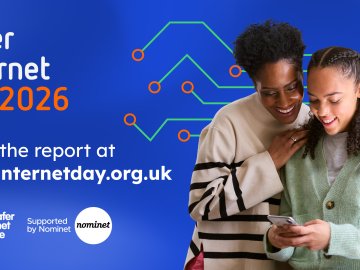Today’s announcement from Ofcom in setting out a 5-point plan to hold sites and apps accountable for protecting women and girls online marks an important and welcome moment in the fight to make online spaces safer. We are pleased to see Ofcom recognise the severity of the issues women and girls face online, and to see the regulator demand practical action from platforms rather than passive promises.
But while this guidance is a much-needed step, it cannot be the last. The harms women and girls experience online, misogynistic abuse, coordinated pile-ons, stalking, coercive control and intimate image abuse, are not abstract risks. They are daily realities for the people we work to support every day. Tech firms must take Ofcom’s call seriously, but we also need a stronger, more enforceable system that closes the gaps that the public continue to fall through.
Platforms Must Act
Ofcom’s five-point plan rightly places accountability at the forefront. The message to platforms is clear: action is expected now, not in the future. Measures such as “prompts” to reduce the spread of misogynistic content, rate-limiting to curb pile-ons, and strengthened privacy controls are all practical changes that could make meaningful differences for women navigating online spaces.
The recognition of image-based sexual abuse is especially significant. Ofcom explicitly encourages the adoption of hash-matching technology to detect and remove non-consensual intimate images, technology that is the foundation of StopNCII.org. We welcome this: it aligns with what our work has shown us across the years. Intimate image abuse cannot be managed with manual reporting routes alone. It requires systemic tools capable of preventing re-uploads before they reach a victim’s feeds, inbox, or search results and StopNCII.org is the proven solution needed to put this in action.
More Is Needed
However, we must be realistic. Guidance, no matter how well-developed, cannot replace enforceable duties, clear deadlines, and robust takedown mechanisms. Survivors are still forced to chase copies of their images across multiple platforms, relying on inconsistent responses and often waiting days, if not weeks, for action. And while Ofcom’s guidance encourages hash-matching, there is still no statutory framework or national registry to ensure all platforms participate, cooperate, and consistently prevent re-uploads.
This is why SWGfL is urging Parliament to strengthen the system further through measures such as Baroness Owen’s amendments to the Crime and Policing Bill, which would create:
- A mandatory 48-hour takedown mechanism
- Verified deletion requirements for offenders
- A statutory NCII hash register overseen by a regulator.
These are the operational protections survivors need to stop abuse from circulating endlessly. Ofcom’s announcement today reinforces just how essential these measures are. The regulator has identified the right harms and the right solutions, now we must embed them in law.
Women and Girls Cannot Wait for Safer Online Spaces
We are encouraged to see Ofcom commit to stronger Codes, greater supervision, and report naming platforms that fail to act. Transparency matters and public reporting matters, but the reality is that many survivors cannot afford to wait until 2027 to know whether platforms are taking the guidance seriously.
Every week, our Helpline supports individuals whose lives have been upended by intimate image abuse. Their safety should not depend on voluntary adoption of best practice; it should depend on clear legal obligations, enforceable deadlines, and a functioning infrastructure that makes re-uploading illegal intimate content practically impossible.
A Foundation to Build On
Today’s guidance provides a strong foundation. It shows Ofcom understands the urgency and is prepared to raise expectations and acknowledges that protecting women and girls must become a core design principle of technology, not an afterthought.
But to deliver meaningful change at the scale required, we need to go further. Ofcom’s guidance is only within the remit of the UK under the Online Safety Act and should be the beginning of a more ambitious, joined-up approach: one that includes statutory hashing frameworks, a national NCII register, and firmer enforcement tools that give survivors confidence that the law is truly on their side.
We look forward to working closely with Ofcom, Government, survivors and fellow frontline organisations to ensure this ambition becomes reality.






